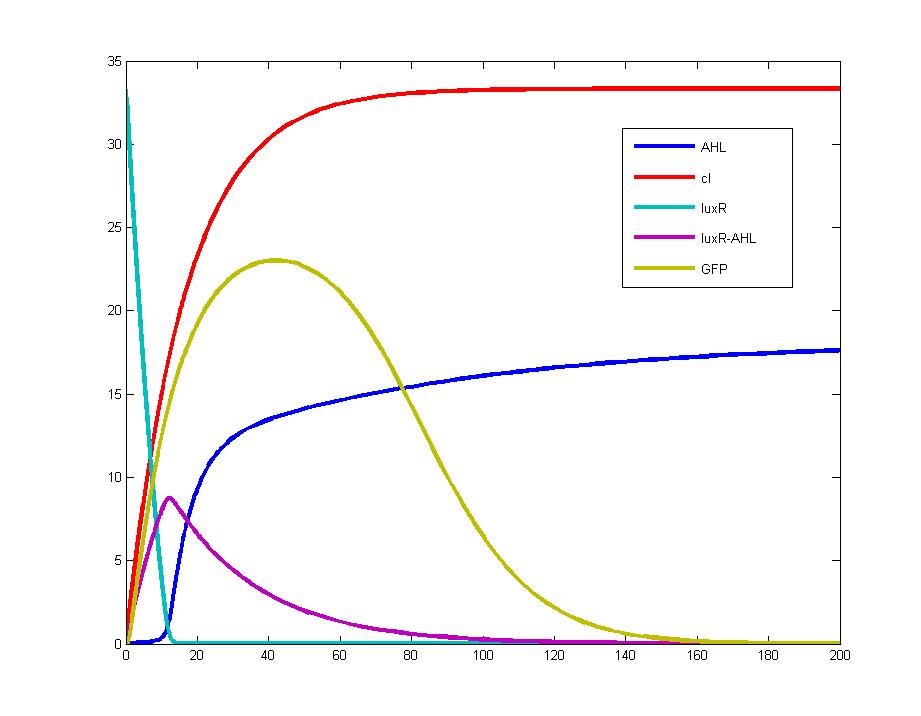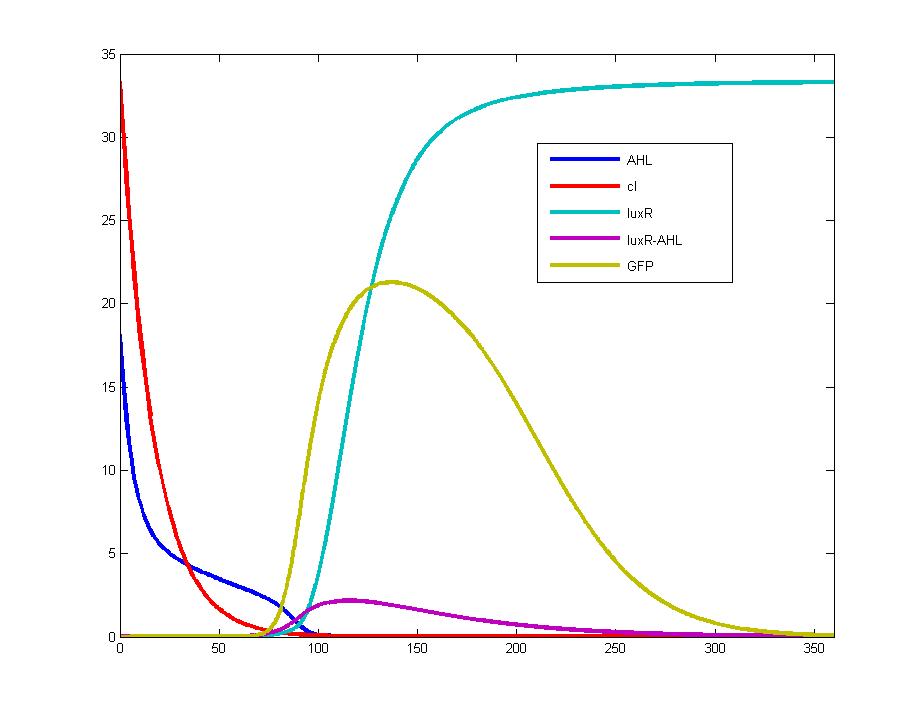Tianjin/FLIP-FLOP
From 2007.igem.org
(Difference between revisions)
Lovecarrot (Talk | contribs) (→Design) |
Lovecarrot (Talk | contribs) (→Design) |
||
| Line 4: | Line 4: | ||
==Design== | ==Design== | ||
"Flip-flop" is the common name given to two-state devices which offer basic memory for sequential logic operations. Flip-flops are widely used for digital data storage and transfer as well as in banks called "registers" for the storage of binary numerical data. Based on the conception of "Flip-flop" and synthetic biology, we designed the Genetically RS FLIP-FLOP whose output signal is regulated by additional input signal. Besides this, we modulate the performance of Genetically RS FLIP-FLOP to optimize our original design. | "Flip-flop" is the common name given to two-state devices which offer basic memory for sequential logic operations. Flip-flops are widely used for digital data storage and transfer as well as in banks called "registers" for the storage of binary numerical data. Based on the conception of "Flip-flop" and synthetic biology, we designed the Genetically RS FLIP-FLOP whose output signal is regulated by additional input signal. Besides this, we modulate the performance of Genetically RS FLIP-FLOP to optimize our original design. | ||
| - | + | ||
Revision as of 02:35, 25 October 2007
Design"Flip-flop" is the common name given to two-state devices which offer basic memory for sequential logic operations. Flip-flops are widely used for digital data storage and transfer as well as in banks called "registers" for the storage of binary numerical data. Based on the conception of "Flip-flop" and synthetic biology, we designed the Genetically RS FLIP-FLOP whose output signal is regulated by additional input signal. Besides this, we modulate the performance of Genetically RS FLIP-FLOP to optimize our original design.
|
Experiment |
Modeling |

